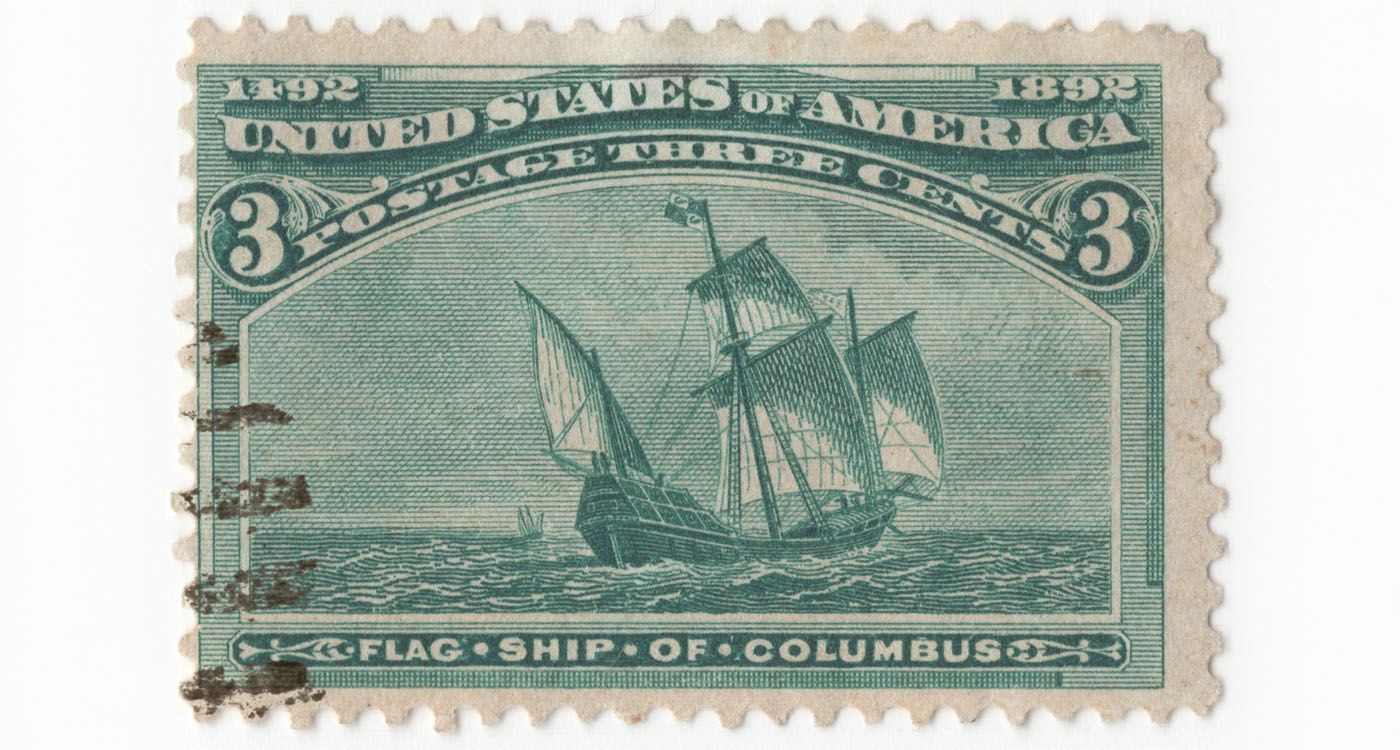- Home
- Middle East
- Columbus Day 2025: A Holiday Still Dividing America

A vintage US postage stamp issued in 1892, commemorating the 400th anniversary of Christopher Columbus’s voyage to the New World. ©Shutterstock
As October 13, 2025, approaches, President Donald Trump has reignited the national debate over Columbus Day by signing a proclamation on Thursday, honoring Christopher Columbus as “a true American hero.”
At a Cabinet meeting in the White House on October 9, Trump declared, “We’re back, Italians,” officially reaffirming the federal observance of Columbus Day and calling it a celebration of exploration, faith and Italian-American heritage.
The move marks a sharp break from former President Joe Biden’s approach; in 2021, he became the first US president to formally recognize Indigenous Peoples’ Day alongside Columbus Day, a gesture meant to honor Native American communities. Trump’s 2025 proclamation, by contrast, explicitly celebrates Columbus’s “relentless determination” and “indelible mark on history.”
“Our Nation will now abide by a simple truth: Christopher Columbus was a true American hero, and every citizen is eternally indebted to his relentless determination,” the proclamation reads.
The president added, “Columbus Day – we’re back, Italians. We love the Italians,” drawing applause from his Cabinet members. White House staff secretary Will Scharf called it “a particularly important holiday for Italian Americans who celebrate the legacy of Christopher Columbus and the explorer’s spirit that defined our nation.”
The Origins of Columbus Day
Columbus Day commemorates the arrival of Christopher Columbus in the Americas on October 12, 1492. Although Columbus never set foot on the North American mainland, landing instead in the Caribbean, his voyage symbolized the beginning of sustained contact between Europe and the Americas.
The first recorded celebration of Columbus’s landing took place in 1792, organized by the Columbian Order in New York City to mark the 300th anniversary of the voyage. Throughout the 19th century, Italian-American communities embraced Columbus as a symbol of pride and belonging in a nation where immigrants often faced discrimination.
In 1937, President Franklin D. Roosevelt made Columbus Day a federal holiday, recognizing both the explorer’s voyage and the growing influence of Italian-American culture. In 1971, Congress shifted the observance to the second Monday in October, giving it the rotating date it holds today.
A Holiday of Heritage and Division
For many, Columbus Day remains a day to honor courage, discovery and immigrant contributions. Parades organized by Italian-American associations continue to be held in cities like New York, Chicago and San Francisco, where speeches often celebrate the role of immigrants in shaping the American identity.
Trump’s reinstatement of the day’s prominence has reignited enthusiasm among Italian-American groups who see it as a victory for cultural recognition.
Yet not everyone views the proclamation as a cause for celebration. Critics argue that Columbus’s arrival marked the beginning of devastating consequences for Indigenous peoples – including disease, forced labor, land theft and cultural erasure.
How America Observes Columbus Day Today
On Columbus Day, federal offices, banks and post offices close, while most private businesses remain open. Schools vary by state policy, with some using the day to teach about Columbus’s voyages while also exploring long excluded from history lessons.
Public sentiment remains divided. A 2023 Pew Research Center survey found that while most Americans support celebrating Italian heritage, nearly half favor replacing Columbus Day entirely or expanding it to include Indigenous Peoples’ Day.
In recent decades, dozens of states and hundreds of cities have shifted their focus toward Indigenous Peoples’ Day, honoring Native communities and reframing the October holiday. States like Alaska, Maine, New Mexico and Vermont exclusively observe Indigenous Peoples’ Day, while others, like California and New York, recognize both.
Trump’s 2025 proclamation challenges that trend, calling for the nation to “embrace once again the great achievements of Christopher Columbus” and to “honor the explorers who opened the path to the New World.” His remarks, particularly his declaration that “we’re calling it Columbus Day,” have been praised by supporters as patriotic, but criticized by opponents.
Finding Meaning in 2025
As the holiday approaches, Columbus Day continues to raise a broader cultural question: how can a nation celebrate its diverse heritage while reckoning with its complicated past?
The answer may lie in balance: acknowledging the courage of explorers and immigrants while also confronting the suffering of Indigenous peoples, whose lives were forever changed after 1492.
Read more




Comments